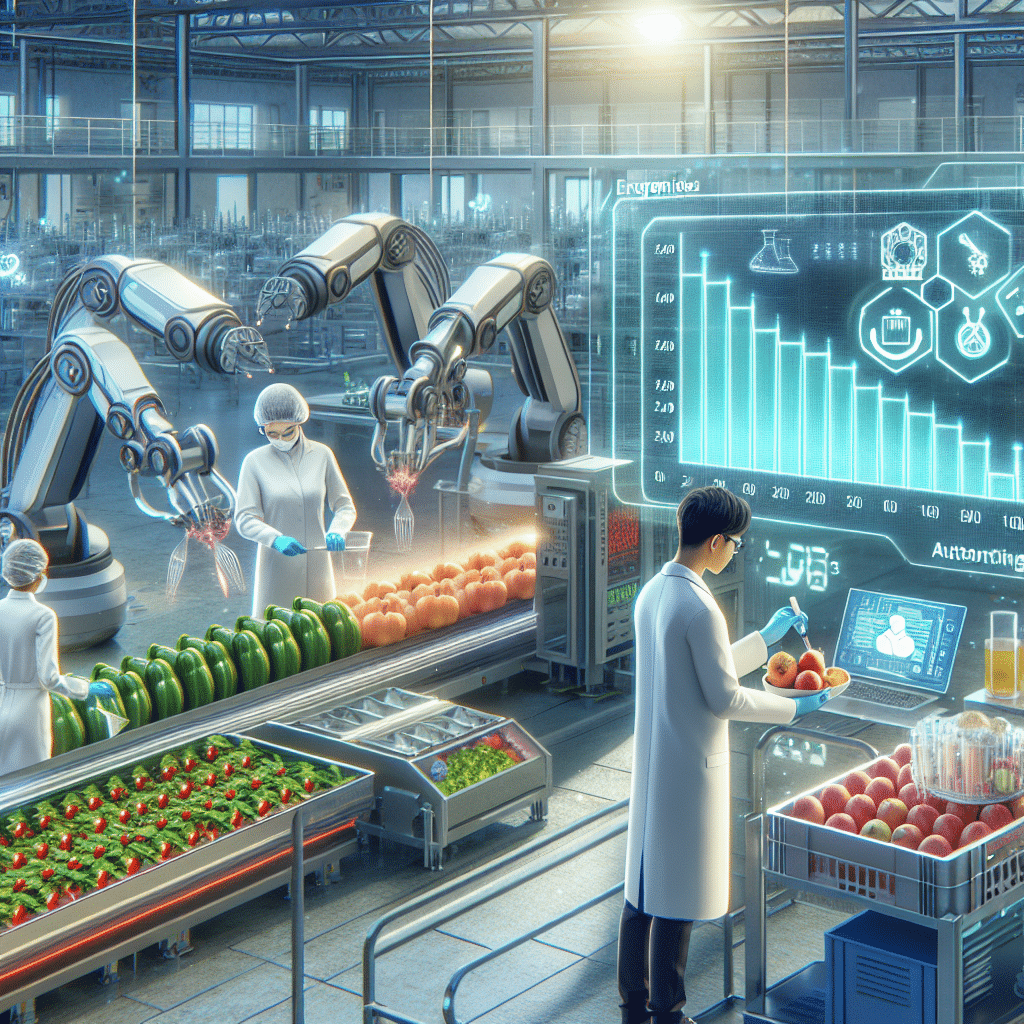The Future of Food Safety: Are Enterprises Ready?
-
Table of Contents
- The Future of Food Safety: Enterprises Gearing Up for Change
- Current State of Food Safety
- Emerging Trends in Food Safety
- Are Enterprises Ready for the Future of Food Safety?
- Investment in Technology
- Compliance with Regulations
- Consumer Engagement
- Sustainable and Ethical Practices
- Statistics and Case Studies
- Conclusion: The Path Forward for Food Safety
- ETprotein: Leading the Way in Safe and Sustainable Protein Products
The Future of Food Safety: Enterprises Gearing Up for Change

The safety of our food supply is a cornerstone of public health and consumer trust. As the world’s population continues to grow, and as our global food system becomes increasingly complex, the importance of food safety has never been more critical. Enterprises across the food supply chain are now facing the challenge of adapting to new technologies, regulations, and consumer demands to ensure the safety and integrity of their products. This article explores the future of food safety and whether enterprises are ready to meet the evolving challenges.
Current State of Food Safety
Food safety encompasses a wide range of practices aimed at preventing foodborne illnesses and ensuring that food products are free from contaminants. Despite ongoing efforts, food safety incidents continue to occur, with significant health and economic consequences. According to the World Health Organization (WHO), an estimated 600 million – almost 1 in 10 people in the world – fall ill after eating contaminated food each year, resulting in 420,000 deaths and the loss of 33 million healthy life years (DALYs).
Emerging Trends in Food Safety
Several trends are shaping the future of food safety, and enterprises must stay ahead of these developments to protect consumers and their brands:
- Technological Advancements: Innovations such as blockchain, Internet of Things (IoT), and artificial intelligence (AI) are revolutionizing traceability and risk assessment in the food supply chain.
- Regulatory Changes: Global food safety standards are becoming more stringent, with regulations like the Food Safety Modernization Act (FSMA) in the United States and the General Food Law Regulation in the European Union.
- Consumer Awareness: Consumers are increasingly informed and concerned about food safety, demanding transparency and higher standards from food producers.
- Sustainability and Ethical Sourcing: There is a growing link between food safety, sustainability, and ethical sourcing practices, with consumers expecting companies to address all three.
Are Enterprises Ready for the Future of Food Safety?
Enterprises are at varying stages of preparedness for the future of food safety. While some are leading the way with innovative solutions, others are struggling to keep up with the pace of change. Here are some key areas where enterprises need to focus their efforts:
Investment in Technology
Adopting new technologies is essential for improving traceability and managing risks. For instance, blockchain can create a transparent and immutable record of a product’s journey from farm to table, while IoT devices can monitor storage conditions in real-time. However, integrating these technologies requires significant investment and a willingness to embrace change.
Compliance with Regulations
With regulations becoming more complex, enterprises must ensure they are fully compliant to avoid penalties and protect their reputation. This means investing in training, updating procedures, and sometimes overhauling entire systems to meet new standards.
Consumer Engagement
Engaging with consumers and building trust is crucial. Enterprises need to be transparent about their food safety practices and responsive to consumer concerns. This includes clear labeling, open communication channels, and proactive management of food safety incidents.
Sustainable and Ethical Practices
Enterprises must recognize the connection between food safety, sustainability, and ethics. Implementing practices that ensure the safety of food while also being environmentally responsible and ethically sound is becoming a competitive advantage.
Statistics and Case Studies
Statistics show that enterprises investing in food safety can see significant returns. A study by the Grocery Manufacturers Association (GMA) found that the average cost of a food recall to a company is $10 million in direct costs, in addition to brand damage and lost sales. Conversely, a report by the Food and Agriculture Organization (FAO) highlighted that for every dollar invested in food safety, there is a return of $10 in reduced health costs and increased economic productivity.
Case studies of companies like Walmart and Nestlé, which have implemented blockchain technology for food traceability, demonstrate the potential benefits of embracing new solutions. These companies have not only improved their ability to track and manage food safety risks but have also enhanced consumer trust in their brands.
Conclusion: The Path Forward for Food Safety
The future of food safety presents both challenges and opportunities for enterprises. By investing in technology, complying with regulations, engaging with consumers, and adopting sustainable and ethical practices, companies can protect public health and gain a competitive edge. The readiness of enterprises to adapt to these changes will determine their success in the evolving landscape of food safety.
ETprotein: Leading the Way in Safe and Sustainable Protein Products
As enterprises prepare for the future of food safety, they can look to companies like ETprotein for high-quality protein products that meet the highest standards of safety and sustainability. ETprotein’s range of organic bulk vegan proteins and L-(+)-Ergothioneine (EGT) products are non-GMO, allergen-free, and characterized by a neutral taste, making them ideal for a variety of industries.
With a commitment to excellence and customer satisfaction, ETprotein is a trusted partner for food and beverage brands looking to enhance their offerings with safe, sustainable, and ethically sourced protein ingredients.
About ETprotein:
ETprotein, a reputable protein and L-(+)-Ergothioneine (EGT) Chinese factory manufacturer and supplier, is renowned for producing, stocking, exporting, and delivering the highest quality organic bulk vegan proteins and L-(+)-Ergothioneine. They include Organic rice protein, clear rice protein, pea protein, clear pea protein, watermelon seed protein, pumpkin seed protein, sunflower seed protein, mung bean protein, peanut protein, and L-(+)-Ergothioneine EGT Pharmaceutical grade, L-(+)-Ergothioneine EGT food grade, L-(+)-Ergothioneine EGT cosmetic grade, L-(+)-Ergothioneine EGT reference grade and L-(+)-Ergothioneine EGT standard. Their offerings, characterized by a neutral taste, non-GMO, allergen-free attributes, with L-(+)-Ergothioneine purity over 98%, 99%, cater to a diverse range of industries. They serve nutraceutical, pharmaceutical, cosmeceutical, veterinary, as well as food and beverage finished product distributors, traders, and manufacturers across Europe, USA, Canada, Australia, Thailand, Japan, Korea, Brazil, and Chile, among others.
ETprotein specialization includes exporting and delivering tailor-made protein powder and finished nutritional supplements. Their extensive product range covers sectors like Food and Beverage, Sports Nutrition, Weight Management, Dietary Supplements, Health and Wellness Products, and Infant Formula, ensuring comprehensive solutions to meet all your protein needs.
As a trusted company by leading global food and beverage brands and Fortune 500 companies, ETprotein reinforces China’s reputation in the global arena. For more information or to sample their products, please contact them and email sales(at)ETprotein.com today.












